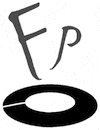Tsjebbe Hettinga, the Bard of Friesland
Friesland, or Frisia, is a province of the Netherlands, consisting of a large chunk of land north of Amsterdam and several large barrier islands along the country’s coast. Frisia is known for its distinctive horses, and for its language, Friesien. This language is considered a dialect of Dutch, and it is more closely related to English than the national language. However, don’t expect to understand much of anything that is spoken in this language. It is a beautiful language to English speakers’ ears, as is evident from the work and performance of its most renowned contemporary poet, the late Tsjebbe Hettinga (1949-2013). Here is a performance by the poet of one of his most beloved compositions, It Faderpaard, as it appears on YouTube. The title It Faderpaard (or Het Vaderpaard in standard Dutch), refers to Frisian horses so prized throughout the world, and in particular, to the horse bred by the poet’s father. This poem, It Faderpaard, has become well known in Friesland, and is also now the name of a music and theater horse show organized in the provincial capital of Friesland, Leeuwardin. Few, if any of us, will be able to understand the text of It Faderpaard, but the hypnotic sound of his recital is well worth the listen.
The sound of this language is akin to that of Scots English or to Old or Middle English, to my ears, at least. I wonder what others hear. This reading is only of the last paragraph of this poem, the full text being about ten times longer.
I thought it would be fun to try to follow along in the text as he recites the words, to hear how his emphasis falls on syllables and sounds. The last two lines translate as: “The father horse and Venus run a long time through the night of the now, for once upon a time it has been springtime forever. Once, once upon a time. “
(Thank you to the poet’s nephew, Nico Hettinga, for help understanding all this!)
Here is the text to what you hear:
Dat faderpaard, dat de makade út’e paden slacht, dat
De blynkape doarpen yn in dream fan himelfarren
De see oer sweevje lit oan in unbidigen ballon fan
In moanne, dat in leafde in leane troch fiert dy’t wiist
Nei in seesalte stal mei in goudgiel bed fan seestrie en
In see dy’t altyd ljochtet, fjouweret, op’en paad. Fuort.
En de speaken yn it tsjil fan in heechfoale swartlakte
Simmernacht draaie yn har rungiseljen stadichoan
Tebek yn it ljocht fan tiid fersplinterjende stjerren. En
Faderpaaard en Venus ride ride troch de nacht fan
It no, want ea ea hat it foar ivich maitiid west, ea, ea.

